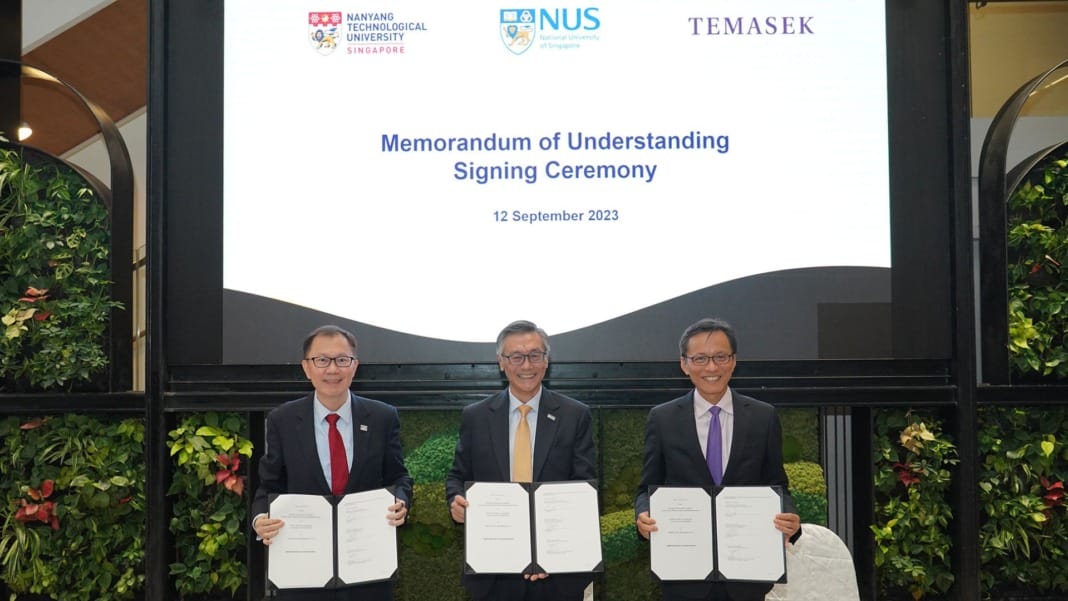Two of Singapore’s leading universities, NTU and NUS, have joined forces to create a groundbreaking startup, AQSolotl, specialising in cutting-edge quantum technology. With a promising debut product already in the market, the company is poised to revolutionise computing and open doors to untapped cryptography, simulations, and artificial intelligence possibilities.
Introducing Chronos-Q: A flagship innovation
AQSolotl’s flagship product, Chronos-Q, is a sophisticated quantum controller that bridges traditional computing systems and quantum computers. This device seamlessly allows users to manage quantum computers using everyday laptops or desktops. By employing precise control techniques, Chronos-Q significantly reduces quantum noise—random disturbances that affect quantum states—ensuring more accurate calculations.
Patrick Bore, the CEO of AQSolotl and a former Research Associate at NUS’s Centre for Quantum Technologies (CQT), emphasised the importance of controlling quantum noise. He explained, “Quantum noise impacts gate fidelity, which measures how accurately a quantum operation is performed. Chronos-Q ensures that the controller isn’t the limiting factor in achieving high fidelity.”
Chronos-Q outpaces its competitors with unmatched speed and affordability. The device can determine a qubit state in under 14 nanoseconds, enabling real-time feedback. This feedback allows researchers to optimise computations actively, which is crucial for handling delicate quantum states and developing advanced algorithms.
Advancing quantum research and scalability
The proprietary technology behind Chronos-Q has been developed over three years and is currently being tested at Singapore’s Centre for Quantum Technologies and NTU’s Nanyang Quantum Hub. AQSolotl’s roadmap envisions future updates to ensure its controllers remain ahead of the evolving capabilities of quantum processing units (QPUs).
Bore hinted at ambitious growth plans for the startup, including manufacturing its QPUs and integrating components into a unified quantum computer. “We aim to simplify quantum computing for users, ensuring they receive a functional system without worrying about the origins of individual components,” he said.
The role of AI in quantum computing
AQSolotl is actively integrating artificial intelligence into its products as part of its forward-thinking approach. The company aims to use classical AI to enhance quantum computing capabilities in the short term. Users can expect simplified operations and optimised performance by incorporating AI-driven calibration and acceleration hardware within Chronos-Q.
Looking further ahead, AQSolotl plans to develop AI models powered by QPUs. Bore believes this technology could surpass current AI systems’ efficiency and output quality. “Early research shows that Qubit-powered AI models could outperform today’s best models in terms of results and operating costs,” he noted.
The partnership between NTU and NUS underscores Singapore’s commitment to advancing quantum technologies. By transferring intellectual property to AQSolotl and holding equity stakes, the universities retain rights for research and academic use while enabling commercialisation.
AQSolotl’s debut signals a major step forward for the quantum computing industry, offering innovative solutions to some of the field’s most pressing challenges. With Chronos-Q leading the charge, the startup is set to push the boundaries of what’s possible in computing and artificial intelligence.





